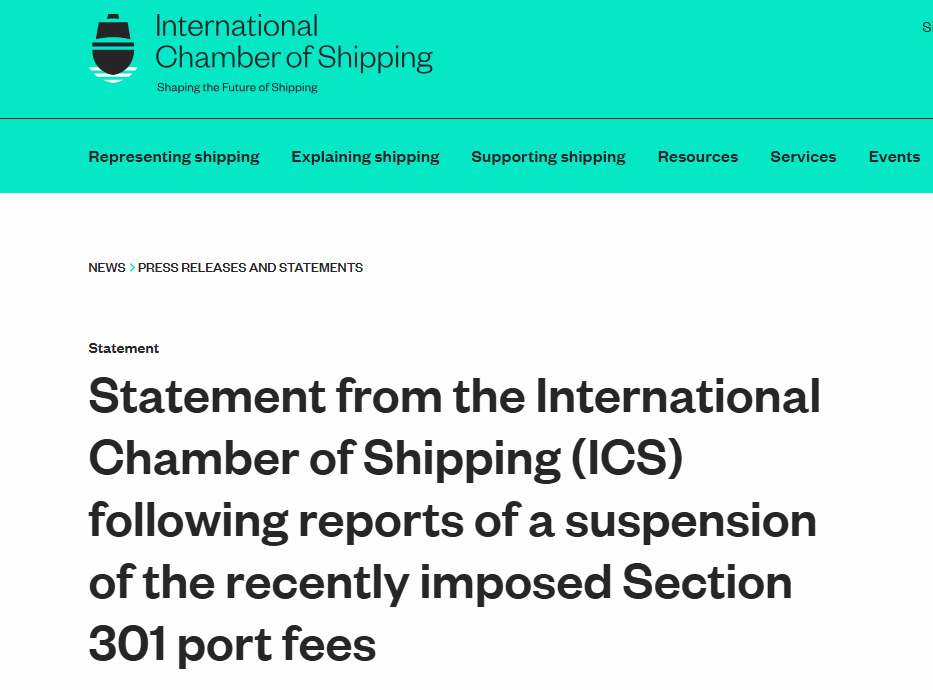On October 30, the International Chamber of Shipping (ICS) issued a statement regarding reports on the suspension of Section 301 port fees. ICS welcomed the agreement reached between China and the United States and looks forward to receiving the confirmed report and further details.

ICS has been involved in consultations with the United States Trade Representative (USTR) since the beginning of the Section 301 investigation, and the government of China, and we look forward to receiving confirmation on these reports and further details.
The reports of the U.S.’ agreement to suspend the Section 301 port fees on China’s maritime, logistics and shipbuilding industries by one year, and the agreed reciprocal suspension of China’s countermeasures targeting US linked ships, is a welcome and positive development.
ICS supports the ambition to increase U.S. shipbuilding capacity and to make the United States Shipbuilding industry strong, as additional commercial tonnage strengthens the global maritime sector’s efficiency and competitiveness. However, the port fees imposed by the USTR on 14 October 2025, and subsequently by China as countermeasures to U.S. linked ships, has already posed significant challenges and disruptions for the shipping industry and global trade.
At ICS we strongly advocate for the need for shipping to be able to move trade freely and efficiently, and remain committed to working collaboratively with all administrations and international partners to avoid any disruptions to the flow of global trade.
On October 30, a spokesperson for China’s Ministry of Commerce addressed questions from reporters regarding the joint arrangements for the China-U.S. economic and trade consultations in Kuala Lumpur. Recently, the economic and trade teams of China and the United States achieved positive outcomes through consultations in Kuala Lumpur, primarily in the following areas:
I. The U.S. will remove the 10% so-called “fentanyl tariff” imposed on Chinese goods (including goods from Hong Kong and Macao Special Administrative Regions), and the 24% equitable tariff imposed on Chinese goods (including goods from Hong Kong and Macao Special Administrative Regions) will remain suspended for another year. China will adjust its countermeasures against the aforementioned U.S. tariffs accordingly. Both sides agree to extend certain tariff exclusions.
II. The U.S. will suspend for one year the implementation of its 50% penetration rule for export controls announced on September 29. China will suspend for one year the implementation of relevant export control measures announced on October 9 and will study and refine specific plans.
III. The U.S. will suspend for one year the implementation of its Section 301 investigation measures targeting China’s maritime, logistics, and shipbuilding industries. Following the suspension of these measures by the U.S., China will correspondingly suspend its countermeasures against the U.S. for one year.
Additionally, both sides reached consensus on cooperation in combating fentanyl trafficking, expanding agricultural trade, and addressing specific cases involving relevant enterprises. They further affirmed the outcomes of the Madrid economic and trade consultations, with the U.S. making positive commitments in areas such as investment. China will work with the U.S. to properly resolve issues related to TikTok.


